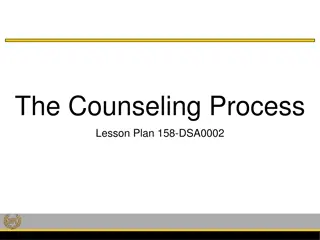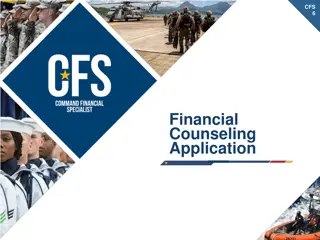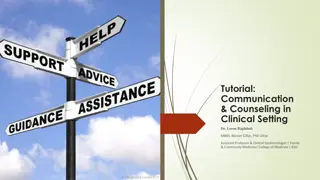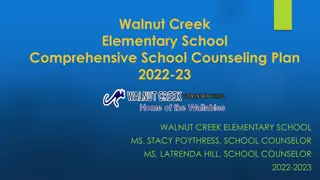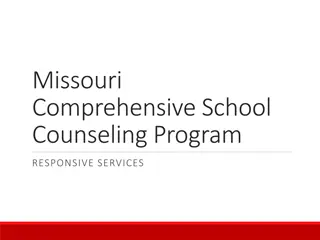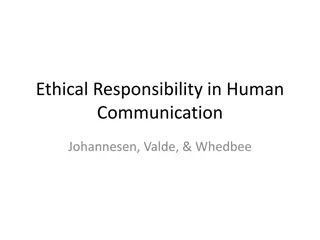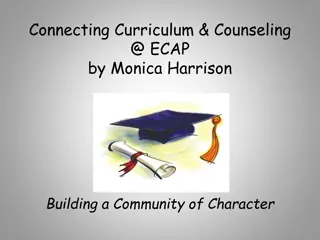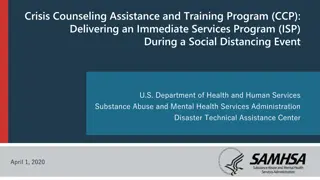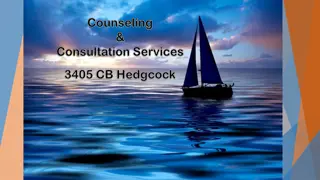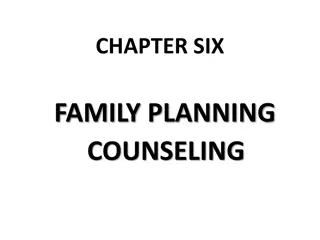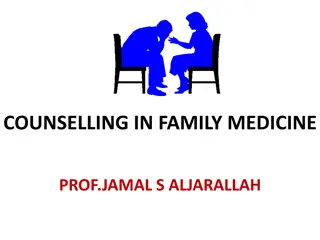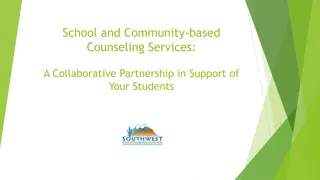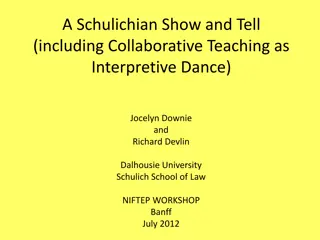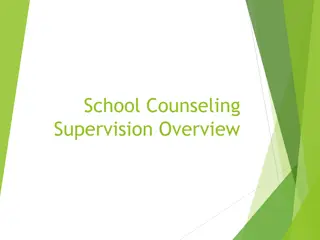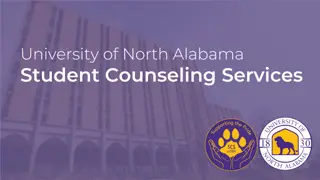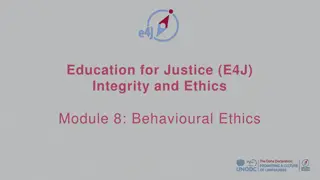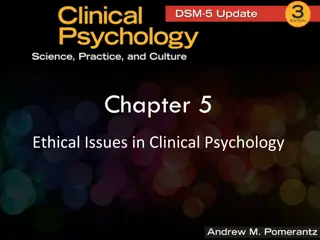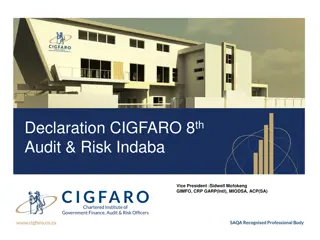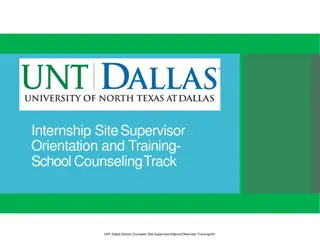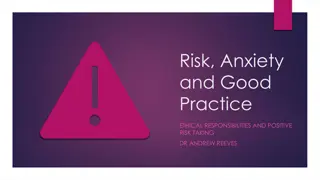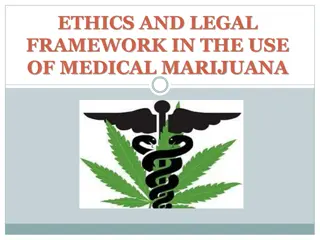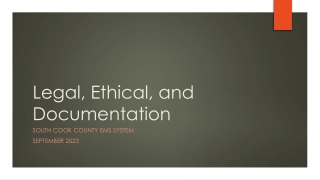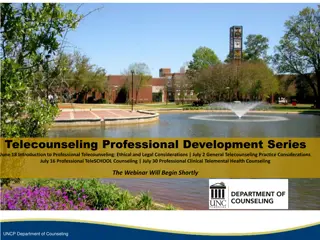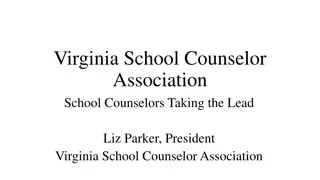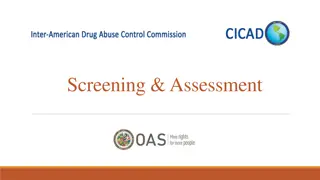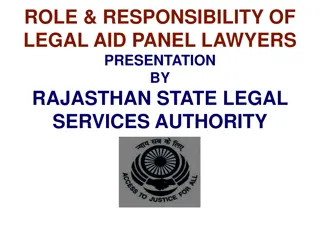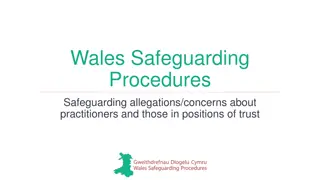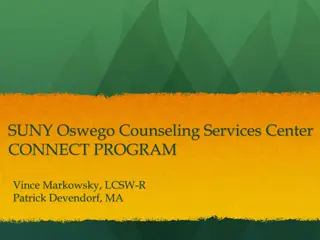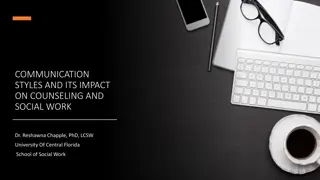Legal and Ethical Concerns in School Counseling
Influences on ethical practice in school counseling include proscriptive norms, statutory law, case law, regulatory law, district policies, and ethical standards. Negligence and malpractice are recognized risks, with sources such as expert testimony and adherence to professional standards used to evaluate conduct. Balancing student confidentiality with parental rights is crucial, with privileged communication status granted to some interactions. School counselors must navigate these complex legal and ethical considerations to best support students.
Download Presentation

Please find below an Image/Link to download the presentation.
The content on the website is provided AS IS for your information and personal use only. It may not be sold, licensed, or shared on other websites without obtaining consent from the author. Download presentation by click this link. If you encounter any issues during the download, it is possible that the publisher has removed the file from their server.
E N D
Presentation Transcript
Chapter 14 Legal and Ethical Concerns in School Counseling
Influences upon the ethical practice of school counseling Proscriptive norms representing consensus opinion within profession regarding best/ideal practices American School Counselor Assoc. (ASCA), American Counseling Association (ACA) Statutory law Enacted by a state or federal legislative body Case law Created by decisions by state & federal courts interpreting statutory law Regulatory law department of education District policies counselors Ethical standards Created by an administrative body of government such as the state Many districts do NOT have formal policies specific to school
Negligence Malpractice Failing to act when a student or client is owed a duty Example: Failure to report suspicions of child abuse (Linde, 2007) Most courts have ruled that school counselors did not owe a duty to provide accurate academic advice, prevent suicide, or inform parents when their child is considering abortion (Stone, 2013) Professional misconduct or any unreasonable lack of skill in the performance of professional duty (aka acting in a manner inconsistent with your raining) (Lovett, 1990) Example: use of Eye Movement Desensitization & Reprocessing (EMDR) without proper previous training
Sources used by courts to determine if school counselor s conduct was within the standard of practice Testimony of an expert witness School counselor s involvement & adherence to the requirements of credentialing bodies The ethical standards of the respective professional organization Involvement in continuing education School board policies Stone (2013)
PSCs recognize their primary obligation for confidentiality is to the students but balance that obligation with an understanding of parents /guardians legal & inherent rights to be the guiding voice in their children s lives, especially in value-laden issues (ASCA, 2010, A.2.d) PSCs recognize the complicated nature of confidentiality in schools & consider each case on context (ASCA, 2010, A.2.c) May choose to based on professional judgment that is in best interests of the child Courts historically protect parental rights over student s right to privacy Legal term that protects rights of students/clients to withhold testimony in court proceeding Some states assign privileged communication status to school counselors interactions with students For minor students, the determination as to whether communications between the student & school counselor are revealed in a legal proceeding are made by the parents/guardians Confidentialty Privileged Communication
Limitations of Confidentiality & Privileged Communication School counselors & teachers are mandated reporters Suspect child abuse/neglect Age of majority varies by state Student is a minor To courts or other agencies Encouraged to obtain written consent If a 3rd person has overheard the communication (e.g., group counseling, group conference) If judge orders, must release, but if lawyer subpoenas then first contact district solicitor Danger-self/others Requires foreseeable harm Parent/student requests release Info. revealed to 3rd party Court order
Serious & Foreseeable Harm-Danger to Self or Others PSCs inform parents/guardians &/or appropriate authorities when a student poses a danger to self or others. This is to be done after careful deliberation & consultation with other counseling professionals. (ASCA, 2010, A.7.a) Serious & foreseeable harm is different for each minor in schools & is defined by students developmental & chronological age, the setting, parental rights & the nature of the harm. (ASCA, 2010, A.7.c) PSCs report risk assessments to parents when they underscore the need to act on behalf of a child at risk (ASCA, 2010, A.7.b) PSCs understand the legal & ethical liability for releasing a student who is in danger to self or others without proper & necessary support that student (ASCA, 2010, A.7.c)
Serious & Foreseeable Harm Danger to Self Not considered serious & foreseeable harm unless there is a clear link to risk of harm to self & others Serious & foreseeable harm: Heroin, PCP, drunk driving Not serious & foreseeable harm: Marijuana, underage drinking If you have a reason to believe that student is at risk for serious & foreseeable harm based on a direct communication you must contact one of student s parents ASAP Ask parent if aware of student s mental state & if wishes to or has obtained counseling If suspect suicidal risk relates to parental abuse or neglect, contact Child Protective Services (CPS) No state or federal law requires you to disclose to parents that child discusses pregnancy or sexual activity In some states pregnancy is considered a natural state School board may enact policy that requires disclosure Substance use Suicide Pregnancy & sexual activity
Serious & Foreseeable Harm - Danger to Others PSCs consider the ethical responsibility to provide info. to an identified 3rdparty who is at a high risk of contracting a disease that is commonly known to be communicable & fatal. Disclosure requires satisfaction of all the following conditions: 1) student identifies partner or partner is highly identifiable 2) SC recommends the student notify partner & refrain from further high risk behavior 3) student refuses 4) SC informs the students of intent to notify the partner 5) SC seeks legal consultation from the district s legal representative in writing as to the legalities of informing the partner (ASCA, 2010, A.2.f) Doesn t apply to common STDs (e.g., herpes, warts) Fatal diseases (HIV)
A national survey revealed that school counselors are likely to breach confidentiality in the following situations: When behaviors are more intense (ranging from a small to large amount of alcohol use) & of greater frequency (ranging from once several months ago to monthly for several months) When students are engaging in suicidal behaviors, even at the lowest levels of frequency/duration & intensity Self-mutilation, substance, antisocial acts For sexual behaviors & alcohol use, school counselors generally only recommended breach confidentiality for high higher use levels of frequency & intensity Were very unlikely to favor breaching confidentiality for any level of smoking Moyer & Sullivan (2008)
Confidentiality & Sexual Activity & Abortion Twenty-six states allow minors (12 & older) to obtain contraceptive services without parental consent, while 20 states permit only certain categories of minors All states permit minors to consent to STI services Contraceptive Service Sexually Transmitted Diseases (STDs) Abortion The majority of states require parental involvement in a minor s abortion Thirty-two states permit all minors to consent to prenatal care Prenatal Care Guttmacher Institute (2015)
Child Abuse Refers to a range of behaviors that includes physical, emotional/psychological, and sexual abuse, neglect & inadequate supervision Federal law designates all educators as mandated reporters, which requires that that they must report suspected abuse or neglect usually within 24-72 hours of first having reason to suspect. Reporters are free from liability for reporting suspected child abuse/neglect, even if a subsequent investigation determines that there is no evidence of abuse/neglect, as long as the report was made without malice, meaning that the report did not seek to harm the alleged perpetrator Most states have serious penalties for failing to report suspected child/abuse neglect Mandated reporters are only responsible for reporting suspected abuse to Child Protective Services
Duty to Warn Duty to Protect Some but not all courts have rules that school counselors have a duty to protect in situations involving serious & foreseeable harm For example, school counselors may need to inform an administrator or a teacher if he or she believes that a student may physically harm another child Although the term duty to warn is not explicitly stated, the Ethical Standards (ASCA, 2010) imply that school counselors such a duty The duty to warn means that school counselors must consider breaching the student s confidentiality if the student poses a danger to others Generally required in situations where potential victims can be identified
Strategies for Balancing Students & Parents Rights Be proactive in informing students and parents about the importance of confidentiality & its limitations through school counseling lessons, student handbook, brochure, school website in additionally to informing students orally Reassure parents that the school counselor will definitely contact them at any time they feel their child might be in danger to themselves or others When talking with parents use active listening skills to understand their concerns which often diffuses their desire for the school counselor to reveal confidential information Encourage direct communication between the parent & child Educate parents about that it is developmentally appropriate in many cases for a child to want privacy Rather than reveal specific information communicated by a child, help parents determine how he or she can assist their child with an issue
Family Education Rights and Privacy Act (FERPA/Buckley Amendment) Parents have control over & right to inspect & review all of child s educational records Can t keep a separate file for school personnel only Doesn t include private notes Schools don t have to provide parents a copy of records Child obtains control when: 1) turn 18 & financially independent, 2) becomes pregnant or has a baby Schools must inform parents of these rights Student info. stored & transmitted electronically is treated with the same care as traditional student records only transmit sensitive info. electronically in a way that is untraceable to a student s identity (ASCA, 2010, A.2.h.)
FERPA/Buckley Amendment Only personnel which have a legitimate educational interest may have access Interact with the child on an official capacity (teach, supervise, etc.) & information would be helpful in their work with that child Must maintain record of those who access School guards & police officers can only access when necessary to protect the safety of students or other individual Must create policies for how parents request access & how may challenge information
School Counselors Case Notes Ethically should maintain notes 1) Continuity of care (refreshing memory) 2) To document actions taken involving situations of imminent risk (risk to self or other & abuse/neglect) Courts often assume that if you did not document actions, you did not take such actions No longer encouraged to keep 2 sets of notes as seen as duplicitous PSCs keep sole-possession records or individual student case notes separate from students educational records (ASCA, 2010, A.8.b) PSCs recognize these records are a memory aid for the creator & in the absence of privileged communication may be subpoenaed & may become educational records when they are shared or accessible to others either in verbal or written form of when they include info. other than professional opinion or personal observations (ASCA, 2010, A.8.c)
Criteria for School Counselors Notes to be Considered Sole Possession Notes 1) They serve as memory aids 2) They are not accessible or shared verbally or in written form with others 3) They are created solely for the person possessing them 4) They include only observation & professional opinions Stone (2013)
School Counselors as Witnesses 1) Read the subpoena carefully. 2) Identify exactly what the subpoena is asking you to disclose. 3) Be aware of your state laws regarding confidentiality for school counselors? A) Do you have privilege in the state you are a school counselor? B) What are the limitations to your privilege if you have it in your state? 4) Contact your school district s legal counsel. A) Remember they are representing the school district, not necessarily you personally. If there is a conflict of interest between and the school districts seek other counsel outside of the district. 5) Document all consulting & conversations regarding this issue. ASCA,
School Counselors as Witnesses 6) Consult with colleagues knowledgeable about the court system. 7) Follow legal counsel suggestions if they are representing your professional interests & the interest of the child. 8) Notify student (&/or parent depending on the age of the student) what information is being requested of you. A) Ask for consent from the student &/or parent to disclose if you & the family feel it will be beneficial to the child. 9) If you have to testify: A) Stick to the facts, not your interpretation or commentary regarding your own thoughts. Reminder: Do not disclose more information than you are requested to submit. ASCA



